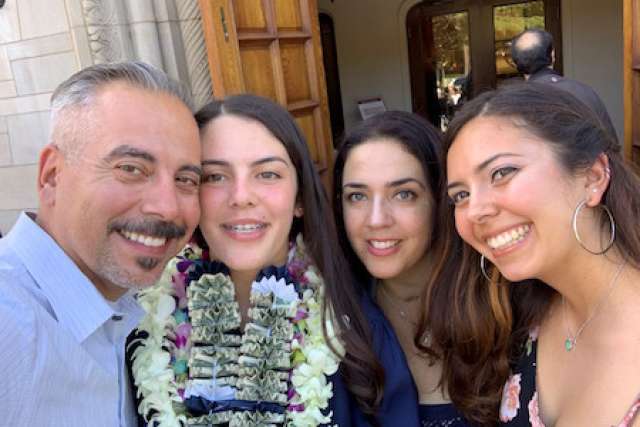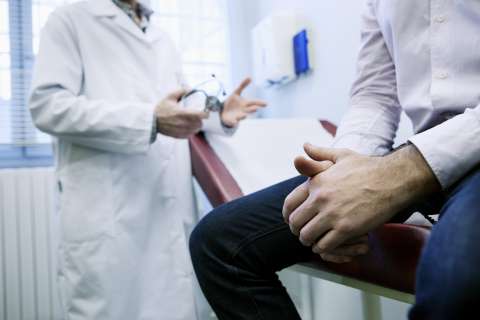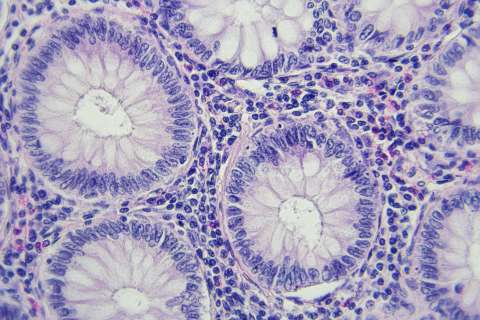Nikki Moreno, a 42-year-old mother of two, was not expecting to hear she had advanced lung cancer when she ended up in the emergency room at the UCLA Health - Santa Monica Medical Center, last October. She hadn't been feeling well for over a year but didn’t think too much of her symptoms.
"I noticed I was getting short of breath when walking the dog and I had developed a little daily cough that wouldn’t go away," she recalls. "I thought 'Am I just out of shape? Did I gain too much weight?'"
She sought care at UCLA Health, and after undergoing tests that were inconclusive, she returned home and continued to get worse. A few weeks later, a CT scan showed she had a collapsed lung and she was immediately admitted to the emergency room at Santa Monica.
"We were grateful to have caught things early enough to restore function to her left lung," said Scott Oh, DO, a pulmonologist and director of interventional pulmonology at Ronald Reagan UCLA Medical Center, who treated Moreno.
However, even with her lung function restored, there was still a larger issue to address that had been revealed by the CT scan. "That's when they told me I had stage IV cancer and that it had spread to my brain," she said. As a younger woman who had never smoked nor had a family history of lung cancer, it never occurred to Moreno that she might develop lung cancer.
"People think that lung disease affects mostly older men who have smoked their whole lives," said Oh, who treated Moreno. However, about one in seven lung cancers in the United States are diagnosed in people who have never smoked before, he said, adding that only a small number of people diagnosed with lung cancer are younger than 45.
Lung cancer strikes women, too. It's actually the leading cause of cancer death for both men and women, according to 2019 data from the American Cancer Society.
On that Thanksgiving morning, Moreno's oncologist called her with news about her test results, which showed she had a rare mutation in a gene known as ALK that affects about 4% of all lung cancer patients.
"The ALK mutation is one of the more treatable mutations because it often responds dramatically to targeted therapy," said Jonathan Goldman, MD, associate professor of hematology–oncology at the David Geffen School of Medicine at UCLA and member of the Jonsson Cancer Center. "The therapy works by honing in on the cancer cells and disrupting their growth."
Moreno said she was terrified to receive the cancer diagnosis, but said there was also a feeling of gratitude that Thanksgiving morning.
"It was a relief to hear that there's a treatment that targets the specific mutation," she said. So much has happened within the last year but I’m grateful to be feeling better."
Signs and symptoms of lung cancer
Talk to your doctor if you have:
- A cough that doesn't go away
- Chest pain that gets worse with deep breathing, coughing, or laughing
- Hoarseness
- Weight loss without trying and loss of appetite
- Coughing up blood
- Shortness of breath
- A weak or tired feeling
- Wheezing
When cancer spreads, as it has by the time it gets to stage IV, it can cause:
- Bone pain
- Problems related to your brain and nerves, like headaches, weakness or numbness in your arms or legs, dizziness, balance problems, or seizures
- Yellowed eyes or skin
- Lumps near the surface of your skin
You should get a lung cancer screening if:
- You currently smoke or have quit within the past 15 years
- You are 55 to 74 years old with a heavy smoking history (such as smoking one pack a day for 30 years or two packs a day for 15 years)



